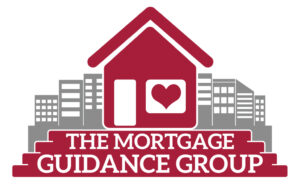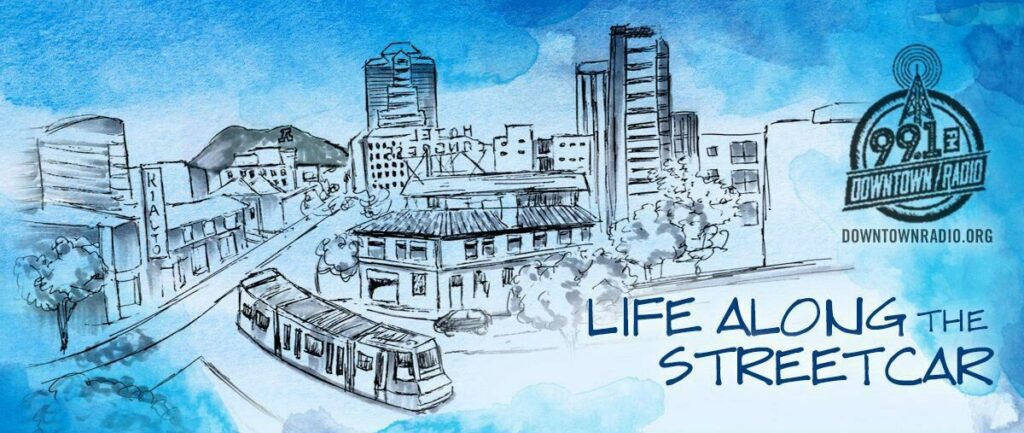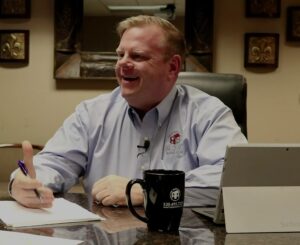Tom Heath
Good morning! It’s a beautiful Sunday in the Old Pueblo. You’re listening to KTDT Tucson. Thank you for spending a part of your brunch hour with us on your downtown Tucson Community sponsored rock and roll radio station.
Tom Heath
This week, we’re going to speak with Mike Peel, the Statewide Sustainability Director for Local First Arizona. We’re going to find out what efforts are underway to help local business owners find their path forward while leaving the smallest footprint. Today is February 21st. My name is Tom Heath and you’re listening to Life along the Streetcar.
Tom Heath
Each and every Sunday our focus is on social, cultural and economic impacts in Tucson’s Urban core and we shed light on hidden gems everyone should know about. From A mountain to UArizona and all stops in between, you get the inside track right here on 99.1 FM streaming on DowntownRadio.org.
Tom Heath
Also available on your smartphone by downloading the Downtown Radio Tucson app. If you want to get us on the show, our email address is [email protected]. Our website is the same and our past episodes are there. We’re on Facebook and our podcast is found on Spotify, iTunes or by asking your smart speaker to play Life Along the Streetcar Podcast.
Tom Heath
We’re going to start today with your chance to impact the direction Tucson takes when it comes to climate change. Last year, the city council learned that Tucson was one of the top warming cities in the nation. In fact, at the time, they were ranked third according to one study and that prompted the city council to declare a climate emergency and they developed a commitment to a 2030 goal of becoming a carbon-neutral.
Tom Heath
It’s a 10-year climate action plan and one of the Big phases of that is finding out what you think is necessary. The city has put together the Climate Action Community survey that is going to help the community find its priorities in this process. We’re going to link to that form our web page. You can also head over to the city of Tucson’s website, pretty easy to find it over there the Climate Action Community survey.
Tom Heath
Though the goal is to get input and rank the the challenges so that we can come up with a sustainable plan over the next 10 years. The survey is going to be open through March 31st. There are Spanish and English versions and some ways to help you get started. So head over to the city’s website or or head over to our Facebook page and find that link.
Tom Heath
Our feature today is no stranger to the climate change. Mike Peel is also no stranger to our show. He is the Southern Arizona director and the Statewide sustainability director for Local First Arizona, and those two positions have put him on the Forefront of so many changes over the years and we caught up with him by phone to discuss the Local First Arizona efforts to keep small businesses open and growing during the pandemic. We were surprised to see how well some of the programs were going and we thought it’d be a great time to share that information with you!
Mike Peel
Michael peel Statewide sustainability director Local First Arizona,
Tom Heath
Let’s just start with the basics. Make sure everyone’s familiar with the general concept of what Local First Arizona is…
Mike Peel
Sure. So local first. Arizona is a nonprofit organization focused on local economy building and community building. We are a local business and nonprofit Coalition. We’re actually over 3,000 members in state and growing strong, which I’m really proud to say we have that kind of reach and it’s really back to the early days of local first Arizona being about the Buy Local movement and all about supporting more businesses and nonprofits, especially local businesses to keep our dollars circulating in our local economy to shift our spending from local corporate businesses and money leaking out of our communities and ensuring that we’re supporting local ownership and that local ownership is prioritized for the impact it can have on the community. It can have a greater impact with the dollars retained and circulating for greater job growth and benefits to those entrepreneurs for growing their local businesses here.
Mike Peel
Along came this pandemic so I would imagine with 3,000 members you spent quite a bit of time on keeping them informed and…
Mike Peel
Well, we immediately shifted to a three-part strategy that we’re still working through with this crisis and we went into immediately at triage mode and then and that meant getting as much support to the businesses as we could gather based on whether it’s finding money for grants for those businesses to stay open, which we were able to do Statewide with a small business Relief Fund and then also getting information about the loans out there as fast as possible on a regular daily basis and any kind of consultation support that we could provide which we continue to do, so education and consultations and direct funding and so we’ve been doing that for almost a year now and at the same time looking to the other stages of recovery and resiliency of getting our economy and Community back to a stable place and hopefully a stronger Place eventually with the programs that we have including our sustainability programs, how to how to build a better ecosystem for local businesses and nonprofits and individuals in our community in our communities across Arizona.
Mike Peel
So that means really our mission is getting more focused in our work than ever and the mission that we have now is to build Equitable systems for Arizona’s local businesses and communities that create a vibrant, inclusive and sustainable Arizona economy by strengthening, supporting and celebrating entrepreneurship, rural and urban community development, racial Equity, environmental action and food access and that Equitable approach is what ties it all together.
Tom Heath
I spent some money during the holidays on a what was really like an online local mall that I think it was through Local First…
Mike Peel
Right, Shop Arizona Marketplace. It’s a new initiative of ours as well in the last year.
Tom Heath
That was really just a once it’s one place. I think where you had multiple vendors from across the state that you could you could purchase from by just going to the one site.
Mike Peel
That’s another goal of ours that we’ve had for a while that we’ve as a team figured out how to move quickly on. We are increasingly working with a Statewide team approach while still having all the regional considerations that we need to have for the entire state. So I think what that looks like is we’re more collaborative than ever and sharing best practices and strategies that are working with our different team efforts and then how it can work across the teams. And so it’s exciting to see how much we’ve been able to work closely together virtually and we already were doing that to an extent prior to covid. So I think we were set up for it internally well, and we’ve gone much further. with it now, so we’re really moving quickly.
Tom Heath
How has membership been through this? Did you see a decrease in membership? Did you lose members?
Mike Peel
We’ve seen it increase! Yes, we’ve seen increased I think because of our rapid response to everything that has occurred and for example even just looking at the Facebook group we have, the amount of updates that go into that Facebook group generally for the entire membership is significant and Consistent and also we have provided, right away, we provided a scholarship program for businesses needing that support as this crisis first hit us and we knew that was going to be a need right away. So I think that it’s been appreciated by our community immensely how far we’ve been able to go with it all.
Tom Heath
It seems like on a national scale the importance of what Local First has been saying for decades is the not just the economic but the cultural benefits of working with your local vendors. That seems to be a resurgent national movement.
Mike Peel
I think there’s more awareness now than ever about how critical it is to support local businesses who are not going to make it to the next month or through the next year without our support. There’s no guarantee that they’ll Be there. It really does come down to the Loyalty of the customers and the community to keep them supported and so absolutely a need and I think that is something that more people are our understanding now how much the the local owner down the street counts on that business and those relationships really matter. And so I do think if I I just speak for Tucson alone. And I know this is across the state people have really stepped up to support their local businesses here during these times and I think it’s it’s really it’s incredible. It’s not the only Avenue for support but it’s a big one and it doesn’t mean that the business will stay in business that way solely based on that support, but I think it’s a big factor and it’s something that we need to keep talking about the benefits are significant.
Tom Heath
There’s no question in in leaderships Minds that Tucson is going to come out of this pandemic stronger than ever the key though is getting the businesses that are up and running now getting them to that that that end result.
Mike Peel
Right and I think understanding what the gaps are going forward because there’s a disproportionate impact with who has access to even the loans is and how much they were able to to receive and yeah better understanding what occurred over the last year is something that will be important for all of us doing this work to understand going forward.
Tom Heath
We are talking with Mike Peel, the sustainability director and the Southern Arizona director for local first. Arizona will be back to the conclusion of that interview in just a moment. But first I want to remind you that you are listening to Life along the streetcar on Downtown Radio, 99.1 FM and streaming on Downtown Radio dot-org.
Tom Heath
Welcome back to the second part of our interview with Mike Peel of local first, Arizona talk a little bit more about some of the sustainability efforts underway in our community.
Mike Peel
With our stainability programs, our approach is to provide as much support in terms of resources and educational programming and that we can and we’ve been doing this for years actually not at the Statewide level, but in the Phoenix Metro Area thanks to our Leadership there and particularly Helene Tak has been doing this work for a long time with the certification program that we’ve had for local businesses and and that has been very successful for us in getting a lot of businesses signed up to want to see what they can accomplish with a checklist approach to sustainability measures and cost-saving measures and so building off of that success.
Mike Peel
I’ve been working for years here in Southern Arizona on a program. That’s a It planning program called scale up to help businesses work together in a cohort to learn about Energy Efficiency and Water Conservation, Transportation reductions, waste reductions how to form a Green Team all the major areas of impact that can happen when you put a sustainability project plan together that can be supporting your business operations with cost savings, with differentiating your business model and attracting new customers and engaging your employees and they having that environmental impact, of course and reducing carbon emissions and making sure that we are tracking it all through data-driven efforts.
Mike Peel
So we’ve been in partnership with the EPA and designing this program and it’s an award-winning program now from when we started it. Two years ago three don’t really now three years ago with the support of the State of Arizona. So their support was essential for us to get the pilot off the ground and then we received the award for the go green award from tep in 2019 for economic development programs success. So I think we’ve been able to get far in a very short period of time. By making it very collaborative.
Mike Peel
We’ve really aim for linking with existing resources out there and experts out there so that we design a program that is the most accessible one that it could be being accessible with it is important for the businesses who were really busy and nonprofits who are really busy to be able to focus on a project that can be ideally a 20% reduction or more in energy reduction or water reduction or waste or whatever they decide to do for their facility in sight. We want to get them to a cost-savings outcome. But also an environmental impact.
Tom Heath
It’s interesting. You know, I think just listening to just general news media or just general sentiments. You kind of get this feeling out there that business and green initiatives are at odds that you know, it’s too costly to be sustainable and and what you’re rich what I’m really hearing from you is it’s the exact opposite that being sustainable and being healthy is actually profitable or or or it can lead to a more profitable business.
Mike Peel
Definitely and that’s something we’ve been working hard at four years is to make that business case for it and it is there and there’s the Tucson 2030 District partnership that we have which is a national model for Nobility planning and meeting goals that are ambitious by 2030 of within a district of buildings within a city to look at fifty percent reductions on average and a minimum in energy water and transportation reductions. And that is a significant goal to meet and it’s really about the what we call the Deep retrofit approach to have a case for investment where there Is more upfront investment but then much greater return on investment. So yeah, that’s why we build it out that way these we want to get people there.
Tom Heath
Have you seen companies that take this investment and are willing to share the results?
Mike Peel
We have some of those examples. Yes, and we have for example, we’ve worked with historic why in the past and they’ve been able to save thousands of dollars on a regular basis by going forward with what they do. Energy Efficiency savings and solar and so they are a sight for supporting many nonprofits at their location and it’s wonderful to see that they’re going in that direction. They’ve been going in that direction for some time. And I think that we want to see more examples like that throughout the city and throughout the state and we’re working on some major demonstration projects right now that can make the case. Within what? We call a connected Community approach more like a smart City sustainable City approach where we look at new technology to consider and working with downtown buildings. So commercial buildings to small business buildings to schools to our partners that we work with through the Southern Arizona Green business Alliance that we started last year.
Mike Peel
We have this new alliance around all the efforts that I’m describing. And so we want to make sure that we are sharing Practices best practices from these demonstration projects which include electric vehicle demonstration projects and smart building demonstration projects and read a lot in the works right now all links together. We’ve got scale up. We’ve got our green leaders certification program here running now, we now have a Southern Arizona certification program that expands on what we’re doing in Phoenix and then the 2030 District programs. So there’s a lot there to offer a really a menu. You of services to businesses to really get to a deep retrofit approach. They go initially with maybe one measure or one project and ideally they go beyond to something of a 50% reduction or more. Maybe they even get to a net 0 approach where they’re not producing any carbon emissions.
Tom Heath
You know, you talked about inclusivity and and how all of these things are interconnected and there’s one project. We just have a couple minutes left but there’s one project I’d really like to touch on I believe I have this right. It’s the Harris Fletcher Project?
Mike Peel
Yes. I want to talk to you about that now.
Tom Heath
Yeah, tell me a little about that. I think it’s very interesting how they’re talking about interconnectivity. This is their kind of pulling it all together.
Mike Peel
They are and they’re doing that in a very holistic way. It’s my favorite example right now of what we can do with Scale Up because what we’re aiming for with Scale Up now, it’s not just the sustainability outcomes that I described but also the social impact opportunities around sustainability and thinking about prioritizing how we support communities and individuals in our community that are disproportionately impacted by climate change, including air quality and Rising costs of energy and really thinking about how we support the whole Community as well as the site in the building that we’re supporting to the program and the programs.
Mike Peel
So here’s Fletcher Enterprises is building an affordable housing project for refugees and Veterans and their goal through scale up is to create a model sustainability project that emphasizes all of the areas of of the sustainability programming that we already are working on through green leaders and scale-up and Green Champion, which is the 2030 District new program. So looking at all the levels that they can go through. From foundational to Advanced as well as emphasizing natural building methods. So they want to look at embodied carbon and I think it’s really important to note how they want to have a community impact with this project. The owners are Disabled Vets who experience long-term poverty is children.
Mike Peel
Now, they’re creating solutions for those experiencing Financial housing and food insecurities, and I think it’s a powerful example of how sustainability can be a strategy to meet those significant community challenges and crises he’s out there. So their goal is right now to provide this project support for particularly those who need low-income housing and they want it to be sustainable. So they want to make it as they want to make it affordable of course and they want to focus on low income and they wanted to do that through scale up as a community model and they want to look at Energy Efficiency, water conservation as well as an Edible Food Forest so they can plant fruit trees and make this an urban Forest right in the Midtown of Tucson.
Mike Peel
They were planning a projected 25 to 50 percent Energy savings, which goes right in line with what we’re aiming for for any of these projects and that’s a significant cost savings for supporting low-income housing and they also want to reduce the heat index in the community by planting more trees. And supporting the million trees initiative with the mayor’s office and they really want to align there and they also want to work with local contractors like watershed management group to develop a conceptual design of their property and then others like natural building Works to support the have the natural building methods alternative building methods for expanding their site for affordable green housing.
Tom Heath
It’s just amazing how it all comes together and we’ll find their website and link to it Harris Fletcher Project because I know they’re there at an infancy stage and a lot of there’s a lot of help that can still be provided to get them to their goals.
Mike Peel
And one other point I want to make on that is there’s actually going to be a Kiva campaign coming up here soon through our partnership with the Community Investment Corporation. They’re going to be launching a phase one campaign crowdfunding campaign to support this Dynamic project. So we’re going to be getting the word out about that and big shout out to community Investment corporation for being a long-term partner on scale up so that we can provide really important scale-up incentives For these projects so we want to make sure there’s low-interest financing and that’s one of the incentives in the toolkit in addition to discounts and rebates and we have exclusive discounts through the program as well for those completing a project plan. So the biggest opportunity within that tool kit is the low-interest financing and Community Investment corporation stepped up to provide that exclusively for these businesses at a range of 0 to 5 percent depending on the project. And I think that’s an incredible example of community collaboration right there!
Tom Heath
Well, I think we could spend the next 10 minutes on shout outs for all the partners in these programs. There’s dozens! Well Mike, I appreciate your time. So Michael Peel is the Statewide sustainability director and the Southern Arizona director for local first, Arizona always a pleasure to have you on the show Mike. Thank you. Thank you, Tom.
Tom Heath
Mike Peel, Southern Arizona director and Statewide sustainability director of local first, Arizona joined us by phone talking about some amazing accomplishments and some extraordinary times. Well, my name is Tom Heath and you are listening to Life along the streetcar and downtown radio 98.1 FM and available for streaming on DowntownRadio.org.
Tom Heath
Well. I got the app because I like to stream it in my car and sometimes when I get too far out of town or I’m heading up to that City up north there. I lose the signal. So I The app playing through my car and I can always listen to The Fabulous volunteer DJ’s at downtown radio and Mike Peel, Our Guest today also has been a DJ on Downtown Radio, he knows his Music stuff.
Tom Heath
We’re going to leave you today with a little song that I know he’ll approve of but before that I want to let you know that coming up next week. We’ve got Dre Thompson from Startup Tuscon, another one of those organizations is doing amazing things during this pandemic and they’re actually celebrating resiliency and we’ll discuss that and talk about their program to relocate people here back to Tucson who are working remotely and other parts of the country. But as I mentioned Mike is a big music lover one of his local favorites is Miss Olivia The Interlopers. So we’re going to leave you a little music from them today. This is their song A blacklisted. Hope you have a great week and tune in next Sunday for more Life Along the Streetcar.




